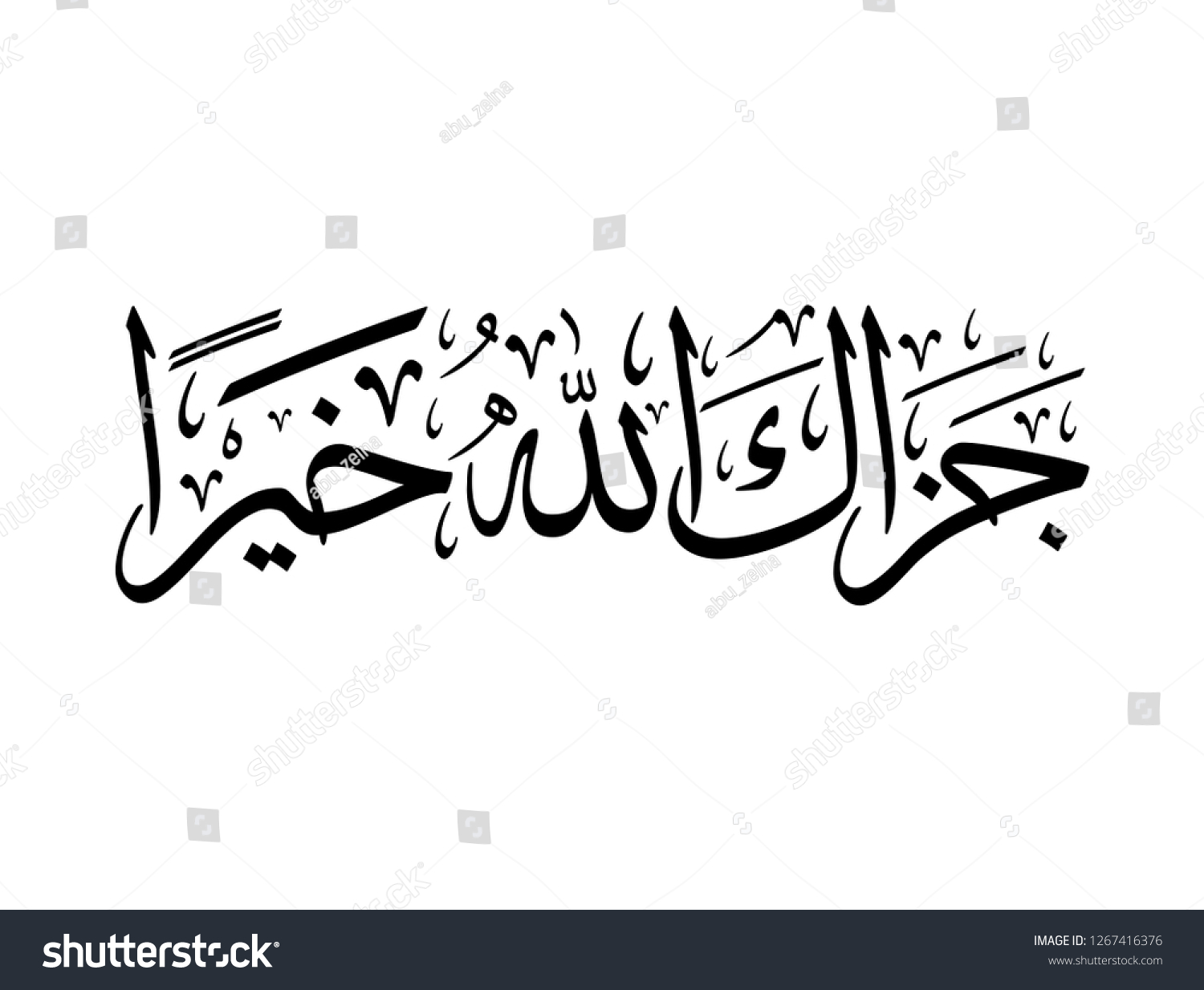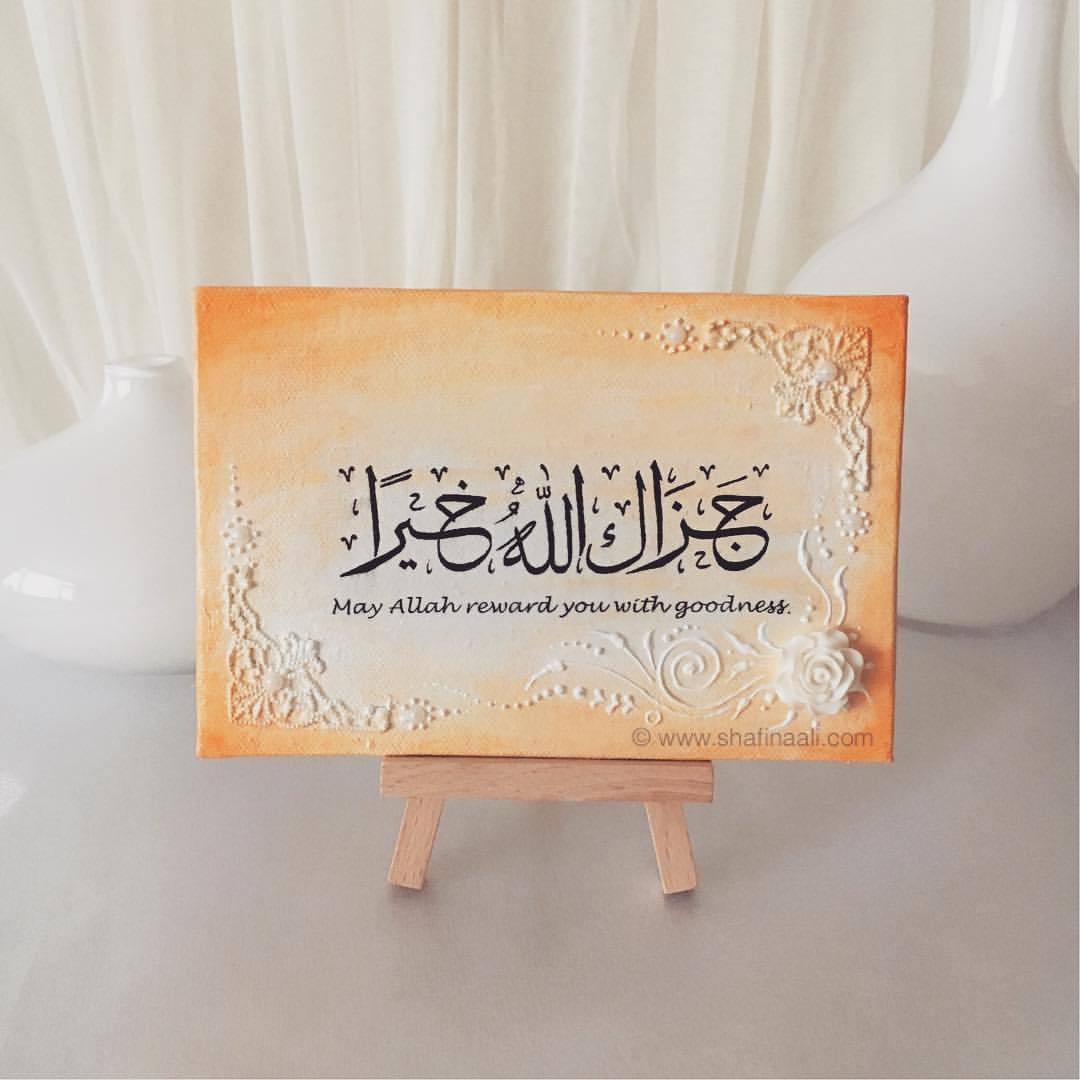The phrase "Jazakallah Khair" in Arabic is not just a casual expression; it carries a profound meaning that resonates with the core teachings of Islam. Rooted in the belief that all good deeds should be acknowledged and rewarded by Allah, this phrase serves as a reminder of the importance of gratitude in daily life. By saying "Jazakallah Khair," you are not only thanking someone but also invoking Allah's blessings upon them. This makes the phrase a powerful tool for fostering positive relationships and spreading goodwill in both personal and communal settings. In today's interconnected world, where cultural understanding is more important than ever, learning about expressions like "Jazakallah Khair" in Arabic can bridge gaps and foster mutual respect. Whether you're engaging with Muslim friends, colleagues, or communities, knowing how and when to use this phrase can make a significant difference. From its grammatical structure to its spiritual significance, this article will explore every aspect of "Jazakallah Khair" in Arabic, helping you understand its depth and relevance in modern times.
Table of Contents
- What Does "Jazakallah Khair" Mean?
- How to Use "Jazakallah Khair" in Daily Life?
- Why Is "Jazakallah Khair" Important in Islam?
- Jazakallah Khair in Arabic: Its Grammatical Breakdown
- Can Non-Muslims Use "Jazakallah Khair"?
- How to Pronounce "Jazakallah Khair" Correctly?
- Jazakallah Khair vs. Other Expressions of Gratitude
- Frequently Asked Questions About "Jazakallah Khair"
What Does "Jazakallah Khair" Mean?
"Jazakallah Khair" in Arabic is a phrase that Muslims use to express gratitude and appreciation. The literal translation of the phrase is "May Allah reward you with goodness." It is derived from the root word "jaza," which means "to compensate" or "to reward." When someone says "Jazakallah Khair," they are essentially asking Allah to reward the person they are thanking for their kindness, effort, or support. This phrase is deeply rooted in Islamic teachings, which emphasize gratitude as a fundamental virtue. The beauty of "Jazakallah Khair" lies in its dual purpose. On one hand, it acknowledges the good deed of the person being thanked, and on the other, it invokes Allah's blessings upon them. This makes it a spiritually uplifting expression that goes beyond mere words. For example, if someone helps you with a task or offers you a gift, responding with "Jazakallah Khair" not only expresses your gratitude but also elevates the act of kindness to a divine level. It reflects the belief that all good deeds are ultimately rewarded by Allah, and by invoking His name, you are recognizing His role in the exchange. In addition to its spiritual significance, "Jazakallah Khair" is also a practical way to foster positive relationships. By using this phrase, you are showing respect and appreciation for others, which can strengthen bonds and create a sense of community. Whether you're thanking a friend, family member, or stranger, "Jazakallah Khair" in Arabic serves as a reminder of the interconnectedness of humanity and the importance of acknowledging acts of kindness.
How to Use "Jazakallah Khair" in Daily Life?
Using "Jazakallah Khair" in Arabic in daily life is easier than you might think. This phrase is versatile and can be applied in various situations to express gratitude. For instance, if a colleague helps you complete a project, you can say "Jazakallah Khair" to thank them for their support. Similarly, if a friend offers you advice or emotional support, responding with this phrase shows that you value their kindness and are invoking Allah's blessings upon them.
Read also:Jake Andersons Fitness Journey A Deep Dive Into His Weight Transformation
Common Scenarios for Using "Jazakallah Khair"
- After receiving help or assistance from someone.
- When someone gives you a gift or does you a favor.
- In response to acts of kindness, such as holding the door open or offering a ride.
- During social gatherings or community events where people contribute their time and effort.
How to Adapt "Jazakallah Khair" for Different Genders?
In Arabic, the phrase can be adjusted based on the gender of the person being thanked:
- For a male: "Jazakallah Khair" (جَزاكَ اللهُ خَيرًا).
- For a female: "Jazakillah Khair" (جَزاكِ اللهُ خَيرًا).
- For a group: "Jazakumullah Khair" (جَزاكُمُ اللهُ خَيرًا).
By incorporating "Jazakallah Khair" into your daily interactions, you not only enrich your vocabulary but also contribute to a culture of gratitude and mutual respect. This simple yet profound phrase can make a significant impact on how you connect with others and express appreciation.
Why Is "Jazakallah Khair" Important in Islam?
In Islam, gratitude is considered a cornerstone of faith, and "Jazakallah Khair" in Arabic embodies this principle beautifully. The Quran and Hadith frequently emphasize the importance of being grateful to Allah and acknowledging the kindness of others. For instance, the Quran states, "And whatever good you put forward for yourselves, you will find it with Allah" (2:110), highlighting the idea that all good deeds are ultimately rewarded by Allah. By saying "Jazakallah Khair," Muslims are aligning themselves with this divine teaching and expressing their trust in Allah's ability to reward goodness.
What Role Does "Jazakallah Khair" Play in Strengthening Community Bonds?
One of the key aspects of "Jazakallah Khair" is its ability to foster unity and harmony within the Muslim community. When someone says this phrase, they are not only thanking the individual but also reinforcing the idea that all acts of kindness are interconnected and part of a larger divine plan. This shared understanding creates a sense of belonging and encourages people to continue performing good deeds, knowing that their efforts will be acknowledged and rewarded.
How Does "Jazakallah Khair" Reflect Islamic Values?
The phrase reflects several core Islamic values, including humility, gratitude, and reliance on Allah. By invoking Allah's name, the speaker acknowledges that all blessings come from Him and that true gratitude is directed toward Him. This perspective encourages Muslims to remain humble and recognize their dependence on Allah, even when expressing appreciation to others.
Jazakallah Khair in Arabic: Its Grammatical Breakdown
Understanding the grammatical structure of "Jazakallah Khair" in Arabic can deepen your appreciation for its meaning. The phrase is composed of three main parts: "Jaza" (reward), "Allah" (God), and "Khair" (goodness). Together, these words form a concise yet powerful expression of gratitude. Let's break it down further:
Read also:Impact Of The Beastie Boys Today Their Legacy And Enduring Influence
Root Words and Their Meanings
- Jaza: Derived from the root "jaza," meaning "to compensate" or "to reward." It signifies the act of giving someone what they deserve for their actions.
- Allah: Refers to God in Arabic, emphasizing the divine source of all blessings and rewards.
- Khair: Means "goodness" or "blessings," highlighting the positive nature of the reward being invoked.
Gender and Plural Variations
The phrase can be adapted based on the gender and number of the person being thanked:
- For a male: "Jazakallah Khair" (جَزاكَ اللهُ خَيرًا).
- For a female: "Jazakillah Khair" (جَزاكِ اللهُ خَيرًا).
- For a group: "Jazakumullah Khair" (جَزاكُمُ اللهُ خَيرًا).
Can Non-Muslims Use "Jazakallah Khair"?
Absolutely! While "Jazakallah Khair" in Arabic is rooted in Islamic teachings, its message of gratitude and goodwill is universal. Non-Muslims can use this phrase to show respect and appreciation for their Muslim friends, colleagues, or acquaintances. By saying "Jazakallah Khair," you are acknowledging the cultural and religious significance of the phrase while fostering positive relationships.
Why Should Non-Muslims Consider Using "Jazakallah Khair"?
Using "Jazakallah Khair" can be a meaningful way to connect with Muslim communities and demonstrate cultural sensitivity. It shows that you value their traditions and are willing to embrace expressions of gratitude that align with their beliefs. Additionally, it can serve as a bridge for interfaith dialogue and mutual understanding.
How to Approach Using "Jazakallah Khair" as a Non-Muslim?
If you're new to the phrase, consider learning its pronunciation and meaning beforehand. This will help you use it confidently and respectfully. You can also ask a Muslim friend or colleague for guidance to ensure you're using it appropriately.
How to Pronounce "Jazakallah Khair" Correctly?
Pronouncing "Jazakallah Khair" in Arabic correctly is essential for conveying its meaning and showing respect for the language. The phrase is pronounced as "Jah-zah-kah-lah khair." Here's a breakdown of the pronunciation:
Step-by-Step Pronunciation Guide
- Jazak: Pronounced as "Jah-zah-kah," with emphasis on the "zah" sound.
- Allah: Pronounced as "Ah-lah," with a soft "ah" sound.
- Khair: Pronounced as "Khai-ruh," with a slight roll on the "kh" sound.
Tips for Mastering the Pronunciation
- Practice saying the phrase slowly at first, focusing on each syllable.
- Listen to native Arabic speakers or online tutorials to get a better sense of the pronunciation.
- Use language apps or tools to improve your pronunciation skills.
Jazakallah Khair vs. Other Expressions of Gratitude
While "Jazakallah Khair" in Arabic is a popular expression of gratitude in Islamic culture, there are other phrases and expressions that serve a similar purpose. Understanding these alternatives can provide a broader perspective on how gratitude is expressed in different contexts.
What Are Some Common Alternatives to "Jazakallah Khair"?
- Barak Allahu Feek: Translates to "May Allah bless you" and is often used interchangeably with "Jazakallah Khair."
- Shukran: A simpler expression meaning "Thank you," commonly used in everyday conversations.
- Alhamdulillah: Meaning "Praise be to Allah," this phrase is used to express gratitude for blessings received.
How Does "Jazakallah Khair" Differ from Other Expressions?
Unlike "Shukran," which is a direct thank-you, "

